During his 10 years with the Denver Broncos, Steve Atwater made his mark on the franchise and the NFL as one of the hardest-hitting safeties ever. In recognition of his exceptional talent, Atwater became a finalist for the Pro Football Hall of Fame's Class of 2020, which is the third time he's been a finalist. As the final vote approaches, DenverBroncos.com will speak with a number of people who experienced Atwater's impact on the game firsthand.
Dennis Smith knows better than most people how Atwater became a Hall of Fame-caliber player. When Atwater arrived in 1989 as a first-round pick, Smith already had eight years in the NFL and two Pro Bowls under his belt, but with the addition of Atwater, the Broncos created a nightmare tandem at safety for their opponents. Meanwhile, he helped mentor Atwater to become a Broncos legend in his own right.
Now, in his own words, Dennis Smith recalls how Steve Atwater became a star and details why he thinks Atwater should get a bronze bust in Canton, Ohio.

"At that time [when Steve was drafted], we knew … they were going to let somebody go. The rumors were kind of like, I was going to get traded or Mike Harden. Something was going to happen with me or Mike Harden, and we didn't know who it was going to be, but we knew somebody was going to go, because you don't draft a guy that high in the first round and not play him.
"That was our understanding, and that was OK with me. I didn't mind the competition. Whatever happens is going to happen, and I told him when I talked to him. I was like, 'I'll do everything [you need]. I'm not going to sabotage you. I'm going to do everything, teach you everything that I know to help you, because if you do take my spot, I want it to be because you outplayed me on an equal playing field, not me trying to screw you up and mess you up.' And he's a good guy; I liked him right from the start.
"It wasn't a hard thing for me to help him along, and I feel like I really mentored him through the years. I was really fortunate to be able to play with him for the years that I did.
"He was raw — a very raw talent. You could see flashes of things that he knew he was capable of, but he just hadn't been taught some things. We had a joke [about] what we called him. … We gave him a nickname of 'Lumber.' … He always thought it was because he hit so hard, like laying the wood. But we all said it was because he was as stiff as a board when he came in. It was a double[-meaning] inside joke, but it was all in fun.
"And he became better as he got more experience. He just wasn't taught a lot of the things he needed to know as a safety. An example is, like, if you had a two-deep zone, he might just go run with that one receiver on his side. He would just go run to that receiver, and for no reason — just because that was the only guy on his side. But in a two-deep zone, if that receiver's running down the field, you don't have to go to him. You just have to be aware of him and know if the quarterback looks at him that you can get to him. But you don't have to go to him and take yourself out of every other play on the other side of the field. … I would say all the way until my last year or the year before, I think it was the end of my career where I would always say, 'We should be connected in a two-deep zone,' which we played a lot of because they took advantage of me and him playing, and what we did in a two-deep zone we did well. I would tell him, 'Sometimes … a receiver will come from my side to your side [and] you've got to be there. You can't be running off somewhere else.' I would stress that to him over and over. …
"We played the Chicago Bears [in 1993] and I got confused on my side — and I never got confused — but for some reason, I went the wrong way and the receiver crossed the field to his side. I was like, 'Aw, man, I am beat.' Then out of nowhere he came and intercepted the ball. I was like, 'Damn, you did it! I've been preaching this to you all this time,' and I'm like, 'Damn, I don't have nothing else to tell you! That's it, you got it!' That's when I knew he got it. I didn't think he would ever catch on to that concept, but he did. That was the last thing I needed to let him know. …
"[Later, when Atwater hit Okoye] — that game is very interesting, because I was in that game — for about two minutes. Then a lineman jumped over the line and hit me right on my ankle, and I was done. Did not play anymore. So I was like, 'OK, I wasn't meant to be in this game at all.' The other thing was he was mic'd up that game, too — Atwater was mic'd up. I was nowhere around; I was on the sideline when he made the hit, but I never got the chance to hit [Okoye] at all. I wasn't meant to be in that picture. That was his moment, and I wasn't going to ruin it for him. … It seemed like fate, that was just the way it was supposed to be.
"Me and Ronnie Lott played together too, and I remember discussing with Ronnie before they played Cincinnati in the Super Bowl with Ickey Woods, and we're talking about how they would attack them. We both agreed you've got to hit him high. You've got to go get him, but you've got to get him early in the game, because you've got to take him out. You've got to give him some doubt that they can just run through you like that. … I just told [Atwater], 'If I get a shot at him, I am going to run through him. I'm just going to run through him. I'm going to hit him high. I'm not going to cut him. What's the point of that? He's used to that.' But you've got to take them out of their comfort zone, make them be aware of you. He took it to the next level [against Okoye]. …
"We took advantage of [our reputation as hard-hitters] as far as pregame. We were just standing, like during pregame when they're warming up, and we'd go stand at the 50-yard line and watch them and just stand there because we were both so tall. For safeties, we were both big guys. And he looked like he was 6-6. I swear, he's way taller than me when I see him, especially on the football field. I know he was intimidating to people to just see. …
"I really enjoyed playing with him. He had way better leadership skills than I did. I was more 'lead by example' and he was like a vocal leader too, and he has a charisma about him that people want to follow. I could see how he had more success as far as them winning the Super Bowl and everything. …
"I wasn't at [Super Bowl XXXII] but I was at home and I was really proud. It really made a lot of former players proud. First impression, I was pissed because I wasn't on the team! … I told him when they won the Super Bowl, 'Maybe y'all just had to get rid of me!' There were a lot of changes that happened before that Super Bowl: getting Terrell Davis, that was a big difference.
"But I loved the way Atwater played in those games. He was a big reason, I think, that they did win, as well as Terrell, but At had good games — he had really great games in the Super Bowl, which is something I wish I had done, and it never happened.
"But after that I was still proud that they won, because they finally won and it kind of was like it put a stamp on the whole organization as, 'This organization is a really good organization that wins a lot and is finally starting to get the recognition.' I think that first Super Bowl win really helped with that, and that's probably the reason more Denver Broncos are starting to get into the Hall of Fame now. Hopefully we'll get one more next month. …
"I told him, 'There's only two people I'm going to the Hall of Fame for,' and that's going to be him or 'Meck' [Karl Mecklenburg]. Other than that, I'm not going — or me, if it would happen, but I ain't holding my breath! But those two guys I would definitely go. …
"I think the main thing you look at [with Steve] is the impact that he has on a game. It doesn't have to be all the statistics, you know? The statistics aren't everything. They don't say everything about a player. It's the impact they have on a game. Times have changed, obviously; you can't hit nobody like that anymore. At would've been broke playing now. He would have to change his style altogether, but just the impact he had as a player was really, really what set him apart from people. Just like the hit on Okoye, that changed the game. He wasn't a factor after that. He wasn't a factor in the game, and that's the point. That's what you want to do, and that's what he did to a lot of teams. They were already afraid of him because of his reputation before he even stepped on the field. That's an advantage for him and it makes a difference.
"And he's always been able to make plays at key times, at the right time in the game to help the team win. And the most important thing people want to do is win. I'm sure he would take the Super Bowl wins over the Hall of Fame any day. But the Hall of Fame is great, and I think he's very deserving."
Previously in Hitting It Big:
Photos from Broncos legend Steve Atwater's Ring of Fame career with the Broncos.
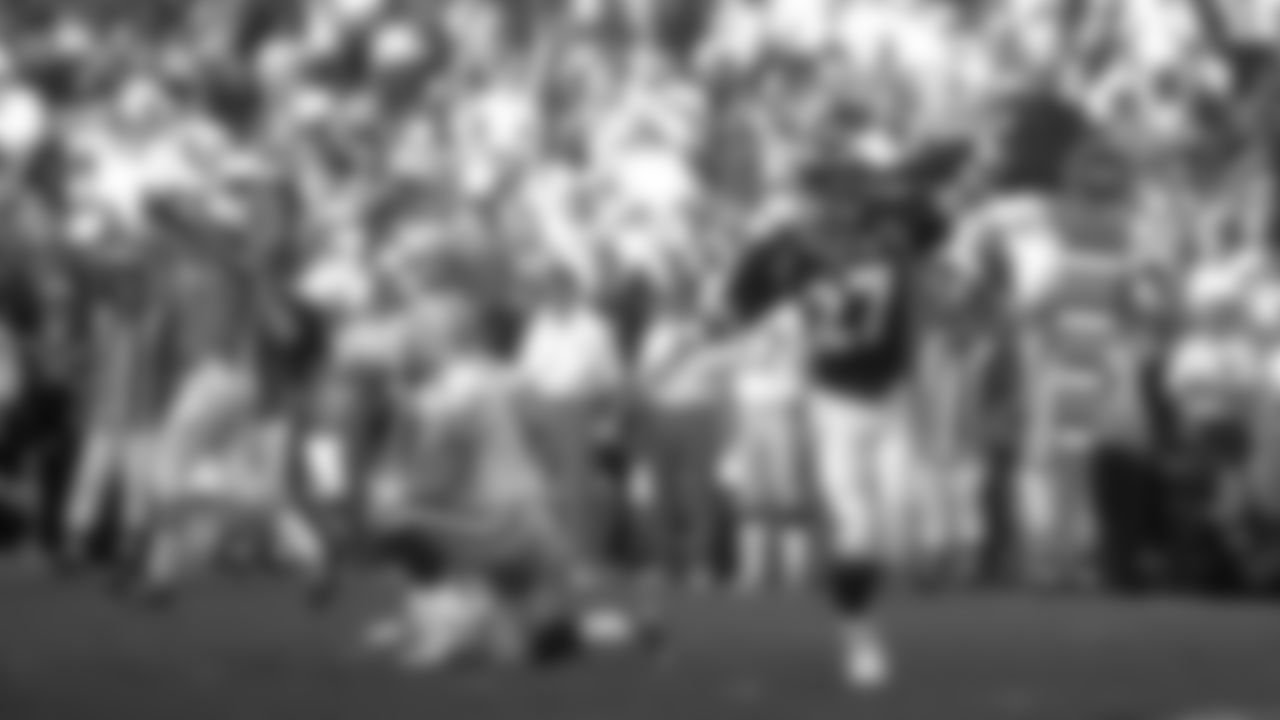
San Diego: Steve Atwater blitzes from the blindside and sacks Brett Favre on the Green Bay 33 during Green Bays first possession of the second quarter. The fumble was recovered by Neil Smith and led to a 51 yard field goal by Jason Elam against the Green Bay Packers at Qualcomm Stadium in San Diego, CA on January 25, 1998.
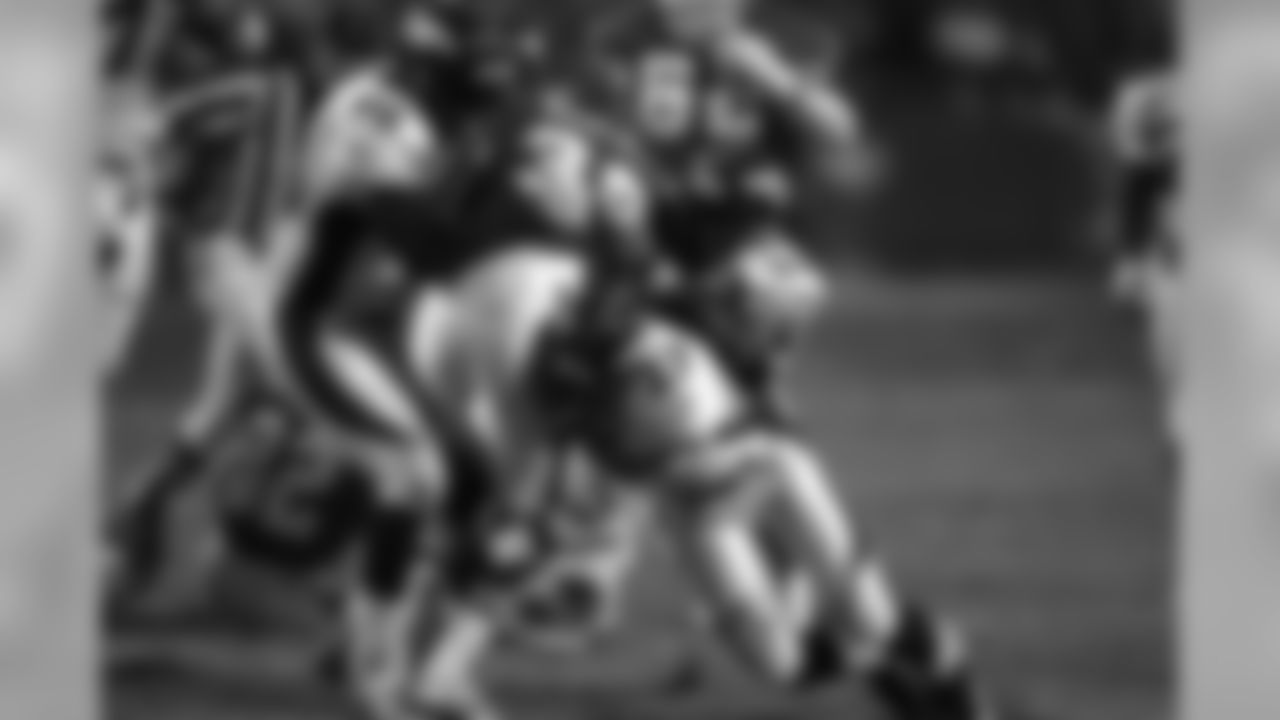
Kansas City: Maa Tanuvasa, Steve Atwater, and John Mobley gang tackle a Chiefs running back as the Broncos team defense performed tremendously during the second round playoff game against the Kansas City Chiefs at Arrowhead Stadium in Kansas City, MO on January 4, 1998.

San Diego: Alfred Williams congratulates Steve Atwater after he scored a touchdown on an interception return against the San Diego Chargers at Jack Murphy Stadium in San Diego, CA on November 30, 1997.
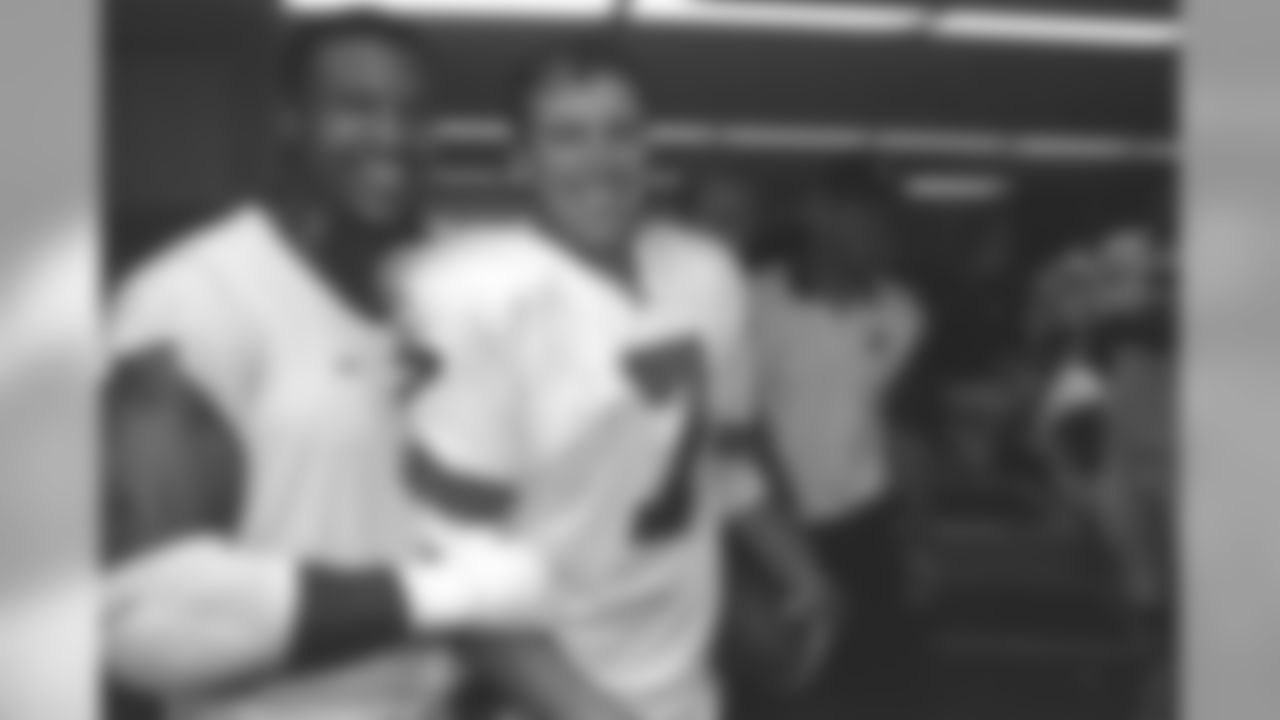
John Elway and Steve Atwater are all smiles in the locker room after a win against the Seattle Seahawks September 8, 1996. John Elway and Steve Atwater are all smiles in the locker room after a win against the Seattle Seahawks September 8, 1996.
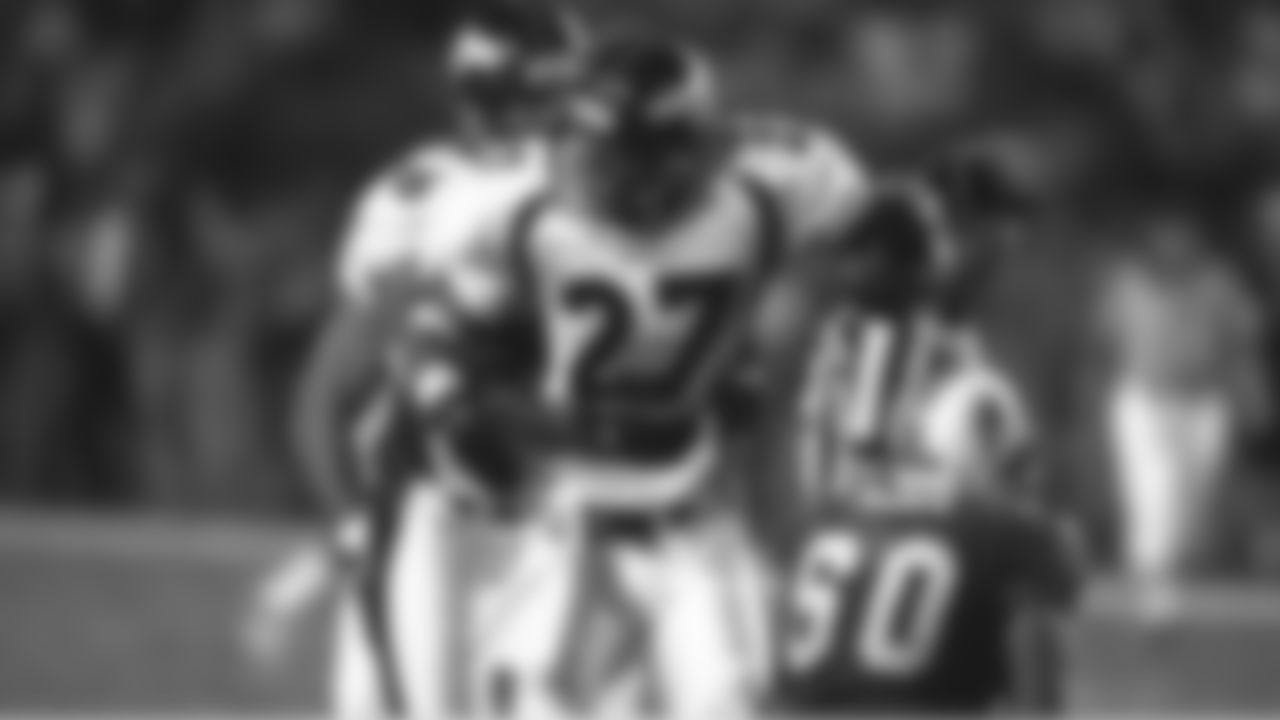
Steve Atwater celebrates after an interception against the Miami Dolphins at Pro Player Stadium in Miami, FL on December 21, 1998.
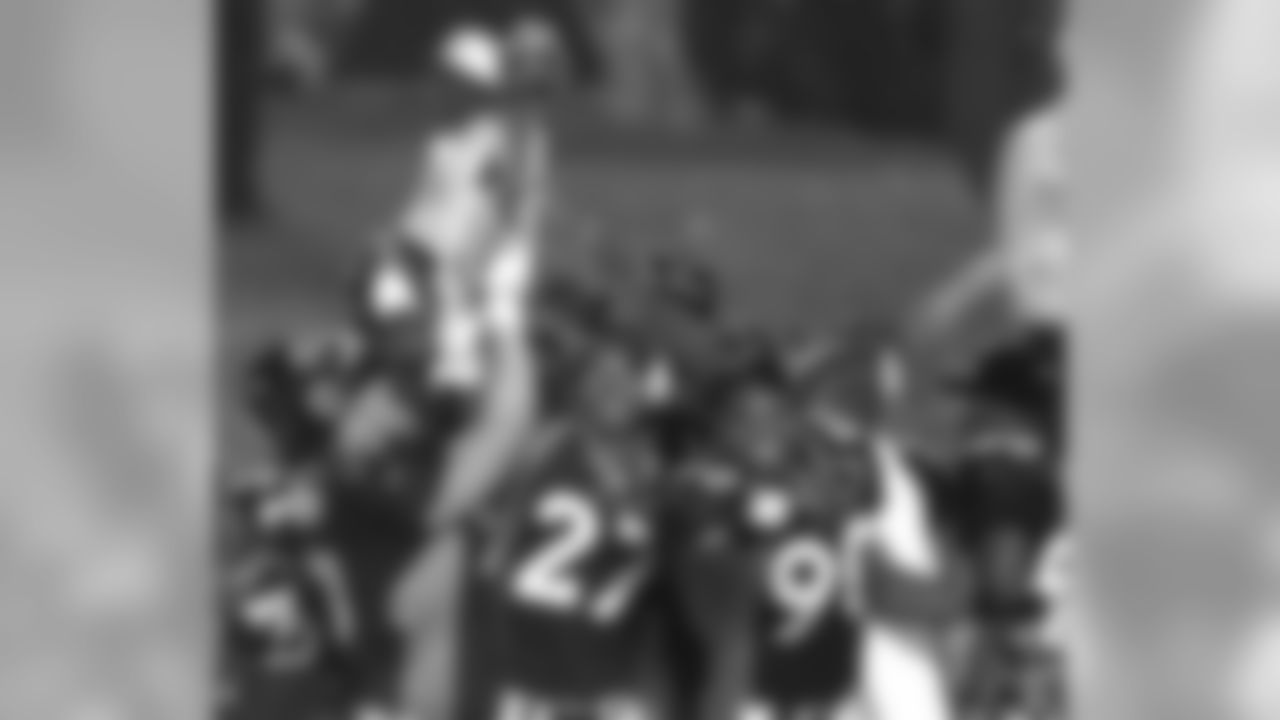
Denver Broncos' Steve Atwater (27) and Neil Smith (90) celebrate their Super Bowl victory with teammates as they hold up the Vince Lombardi trophy after defeating the Packers at San Diego's Qualcomm Stadium Sunday, Jan. 25, 1998. (AP Photo/Elaine Thompson)
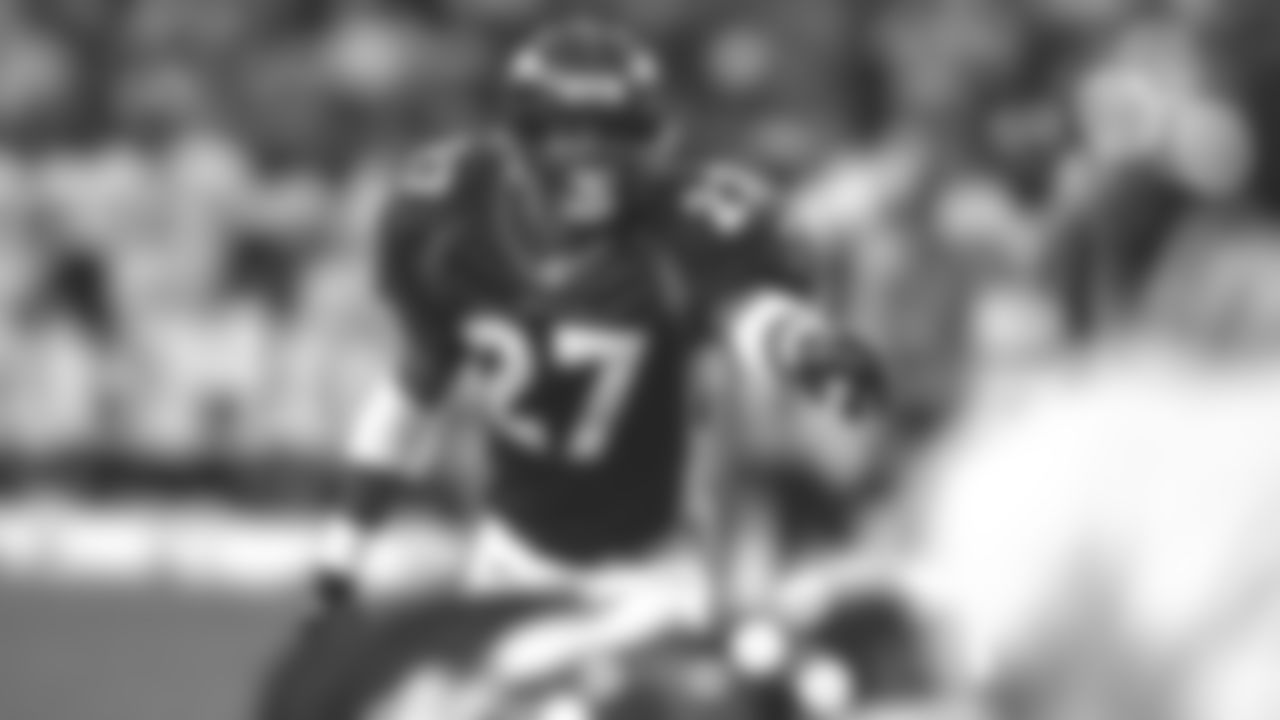
Steve Atwater gets ready on defense against the Jacksonville Jaguars at Mile High Stadium in Denver, CO on October 25, 1998.
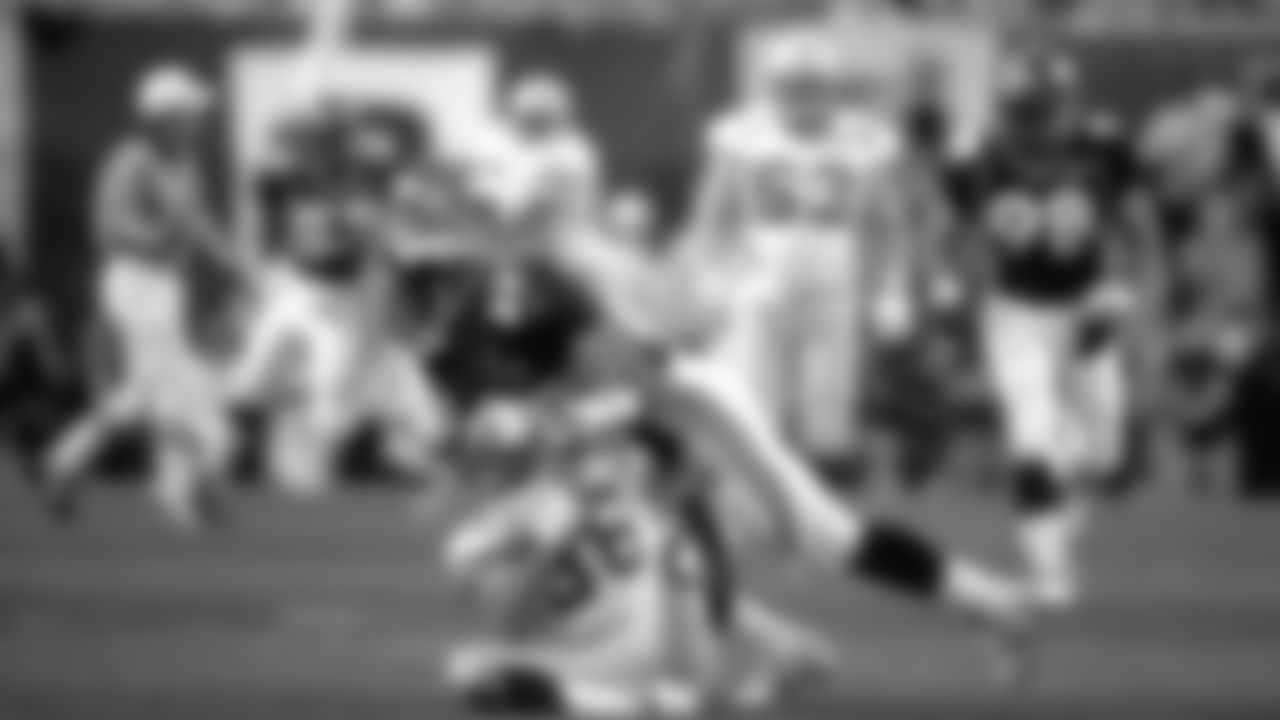
San Diego: Antonio Freeman catches a 13 yard pass from Favre on a third and nine and gets the first down despite a big hit by Steve Atwater. This was the third play of the game, the opening drive against the Green Bay Packers at Qualcomm Stadium in San Diego, CA on January 25, 1998.
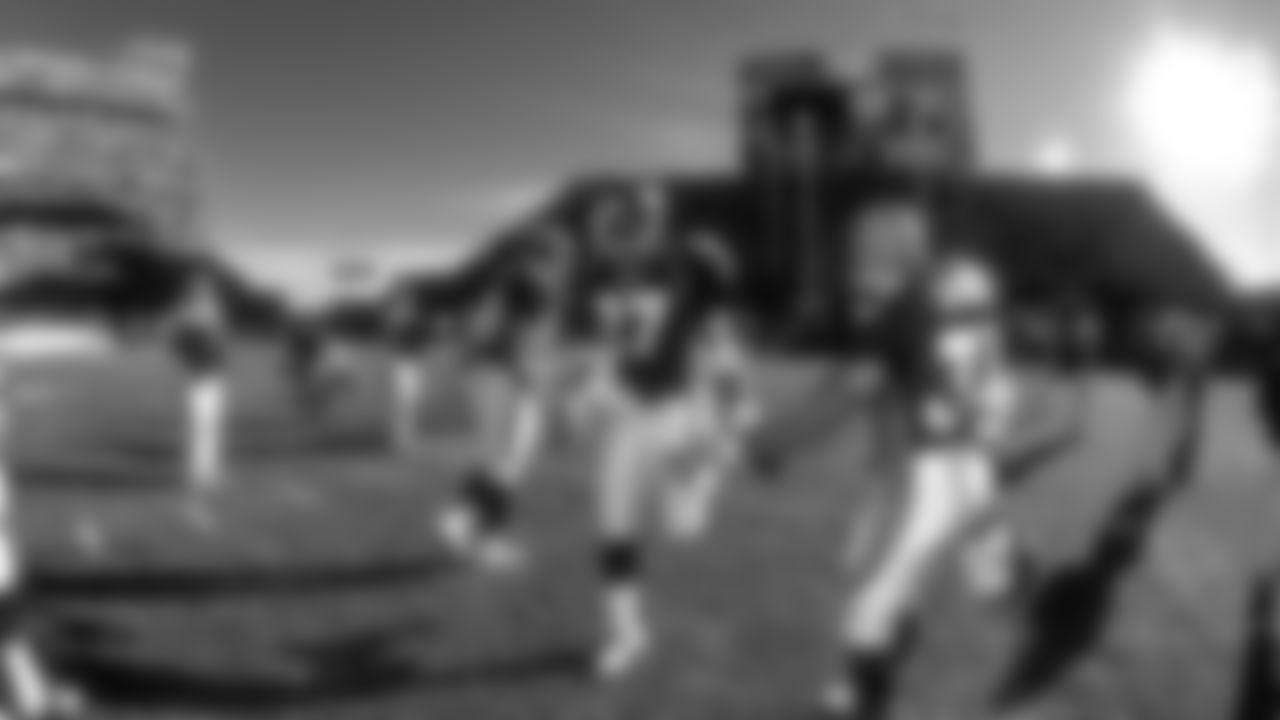
Steve Atwater runs onto the field during the pre-game announcements against the Oakland Raiders at Mile High Stadium in Denver, CO on November 22, 1998.

Denver Broncos safety Steve Atwater (27) is seen in action during an NFL game against the Los Angeles Rams Nov. 6, 1994, in Anaheim, Calif. (NFL Photos via AP)
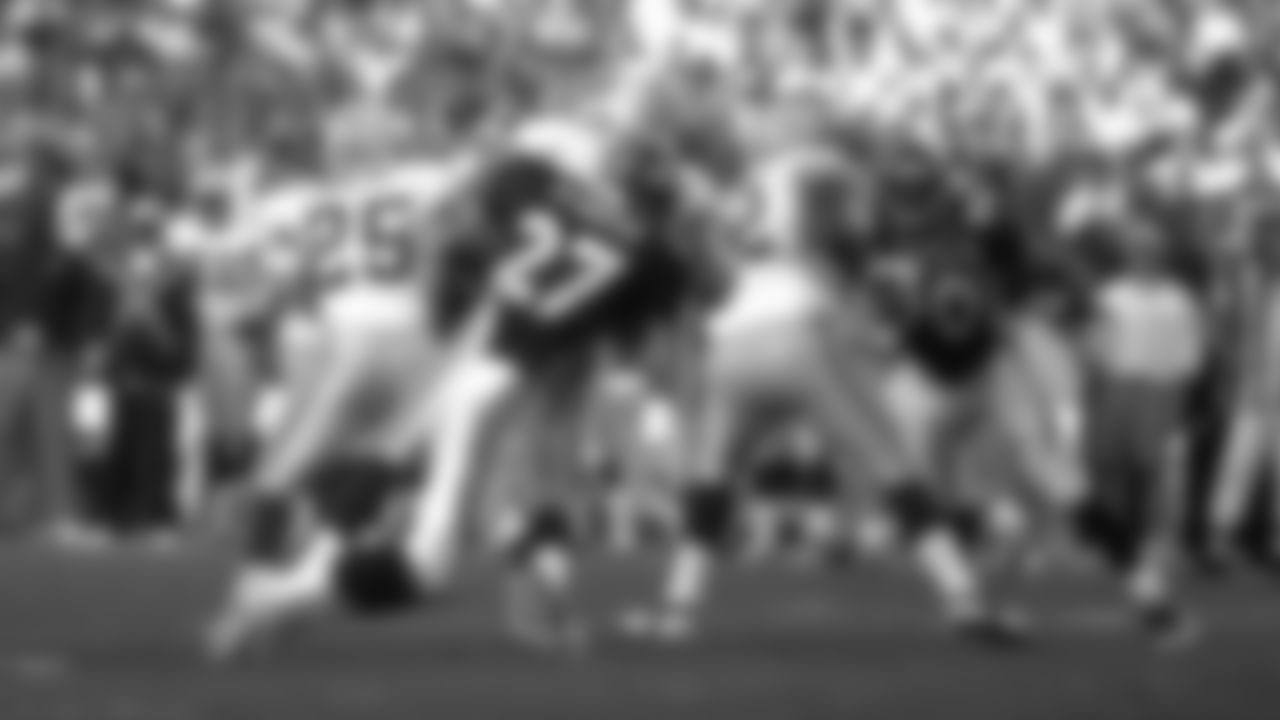
San Diego: Steve Atwater blitzes from the blindside and sacks Brett Favre on the Green Bay 33 during Green Bays first possession of the second quarter. The fumble was recovered by Neil Smith and led to a 51 yard field goal by Jason Elam against the Green Bay Packers at Qualcomm Stadium in San Diego, CA on January 25, 1998.
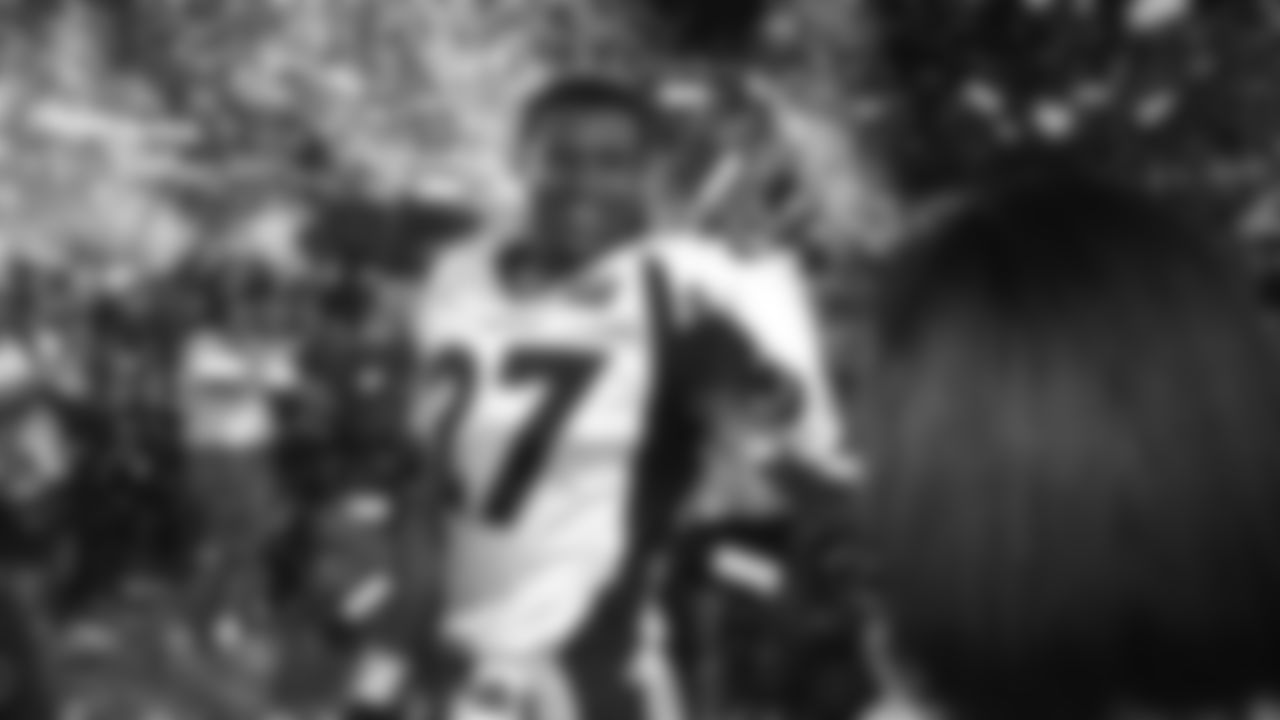
Steve Atwater celebrates his victory against the Atlanta Falcons at Pro Player Stadium in Miami, FL on January 31, 1999.
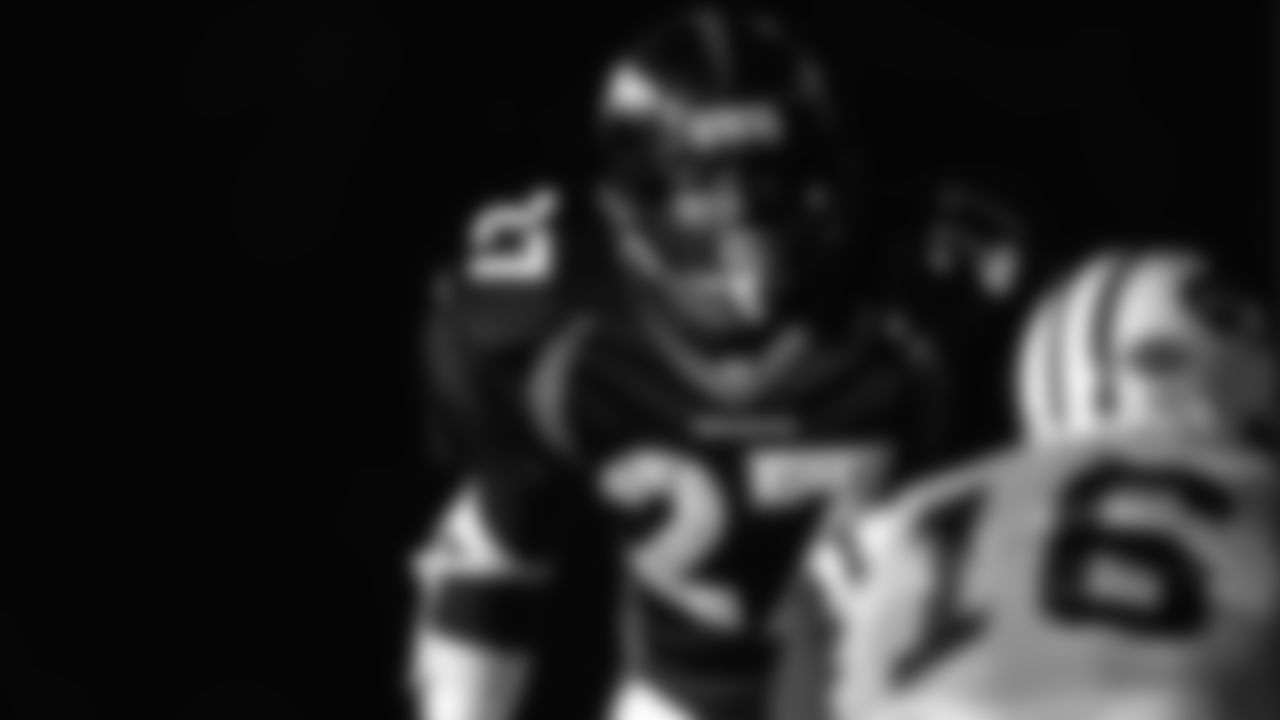
Steve Atwater awaits the snap of the ball against the New York Jets at Mile High Stadium in Denver, CO on January 17, 1999.
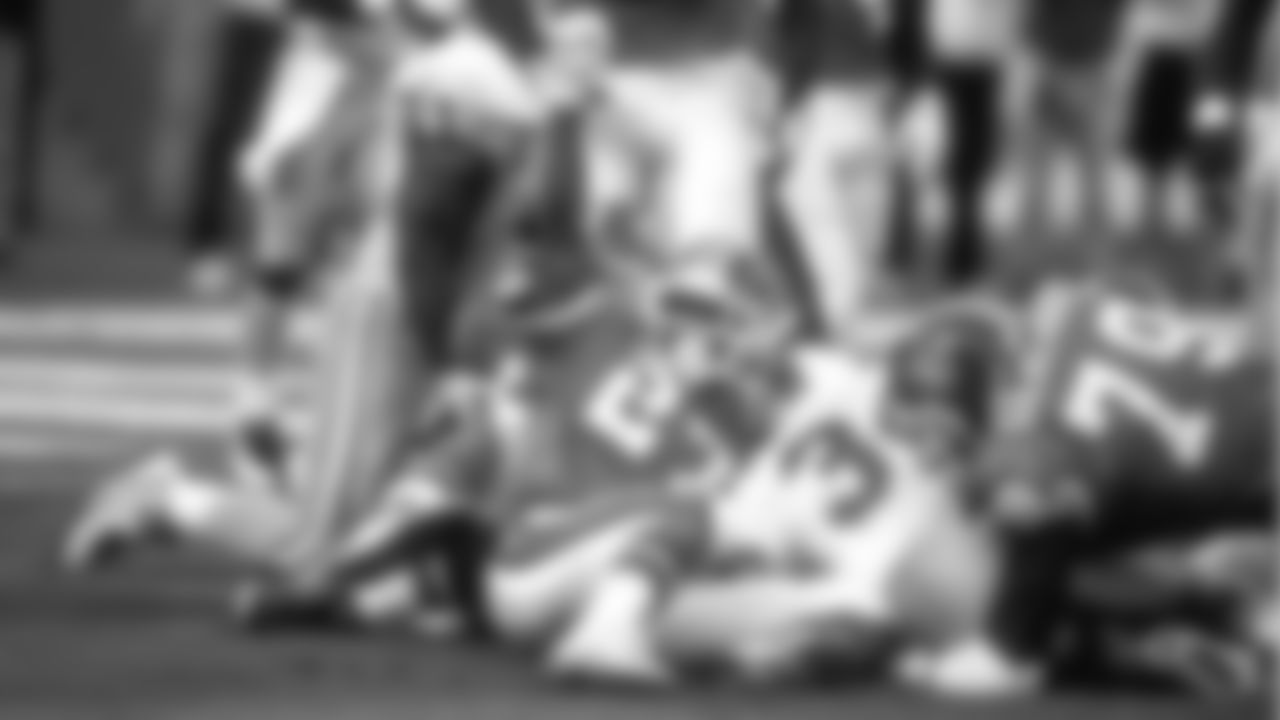
Safety Steve Atwater and tackle Jumpy Geathers celebrate after tackling a Buccaneer ball carrier during a September 15, 1996 win (27-23) over Tampa Bay.
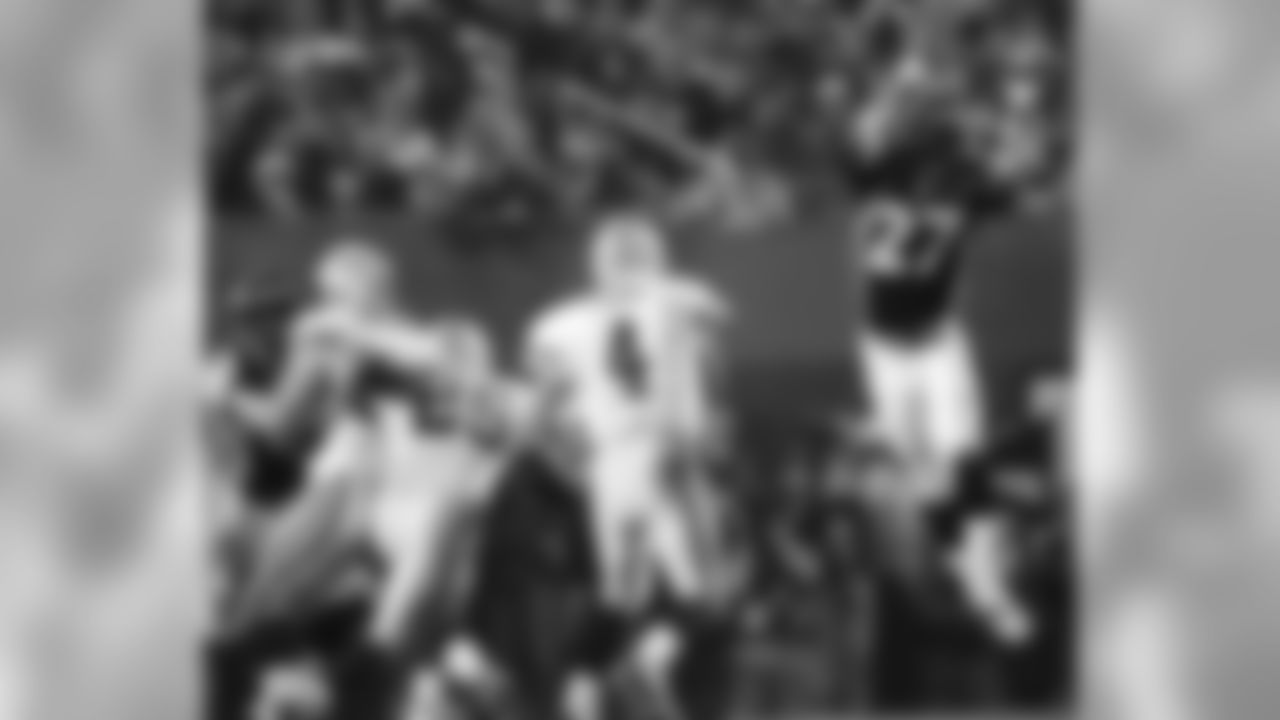
Denver Broncos safety Steve Atwater (27) jumps into the air in an attempt to block Green Bay Packers quarterback Brett Favre's pass during the third quarter of Super Bowl XXXII at San Diego's Qualcomm Stadium Sunday, Jan. 25, 1998. At left is Packers' Dorsey Levens (25) and guard Adam Timmerman (63). (AP Photo/John Gaps III)
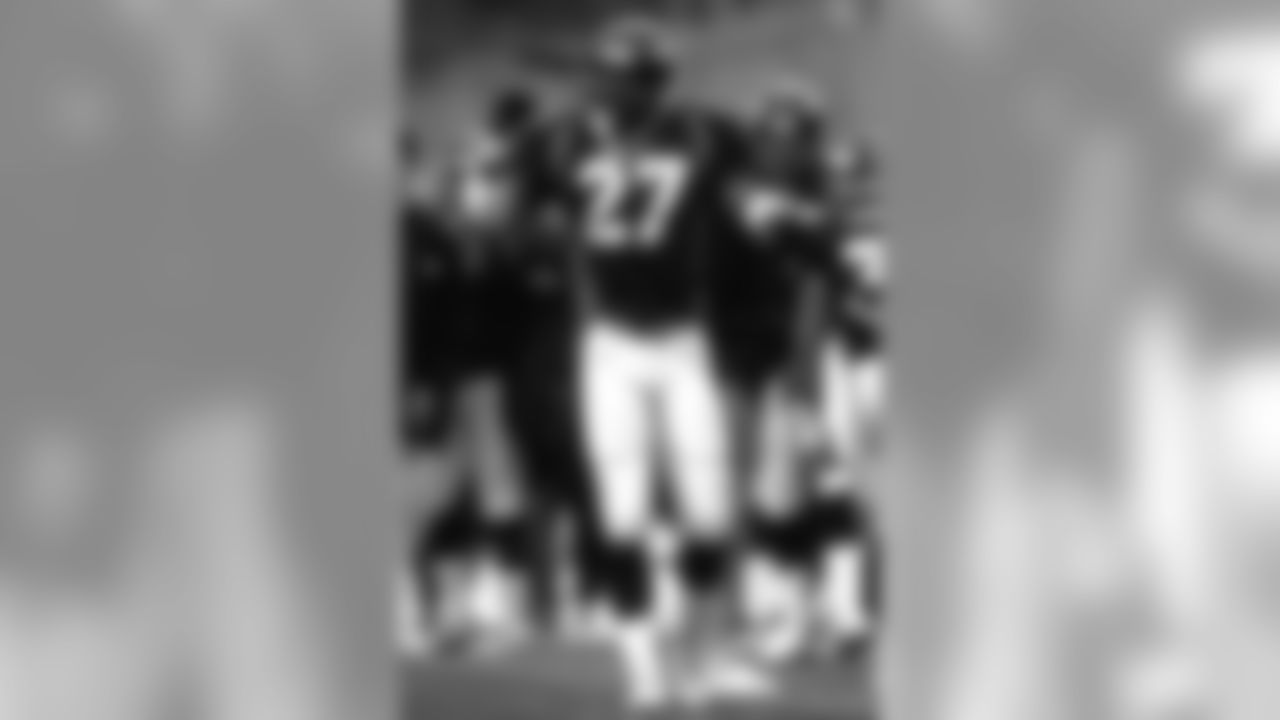
Steve Atwater cheers on his teammates against the Philadelphia Eagles at Mile High Stadium in Denver, CO on October 4, 1998.
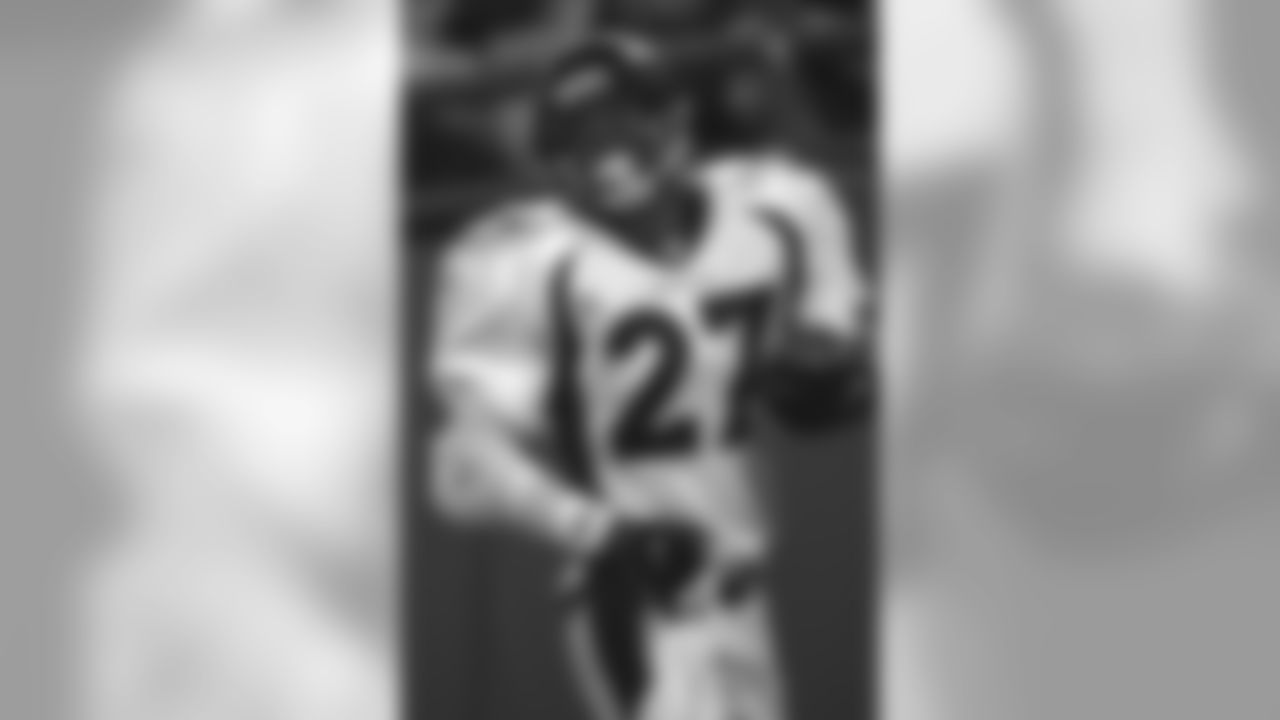
San Diego: Steve Atwater jogs into the endzone with a smile after returning an interception for a touchdown against the San Diego Chargers at Jack Murphy Stadium in San Diego, CA on November 30, 1997.

Kansas City: Steve Atwater hit quarterback Elvis Grbac after he throws. The defense applied pressure to Grbac all day long, sacking him four times against the Kansas City Chiefs at Arrowhead Stadium in Kansas City, MO on January 4, 1998.













